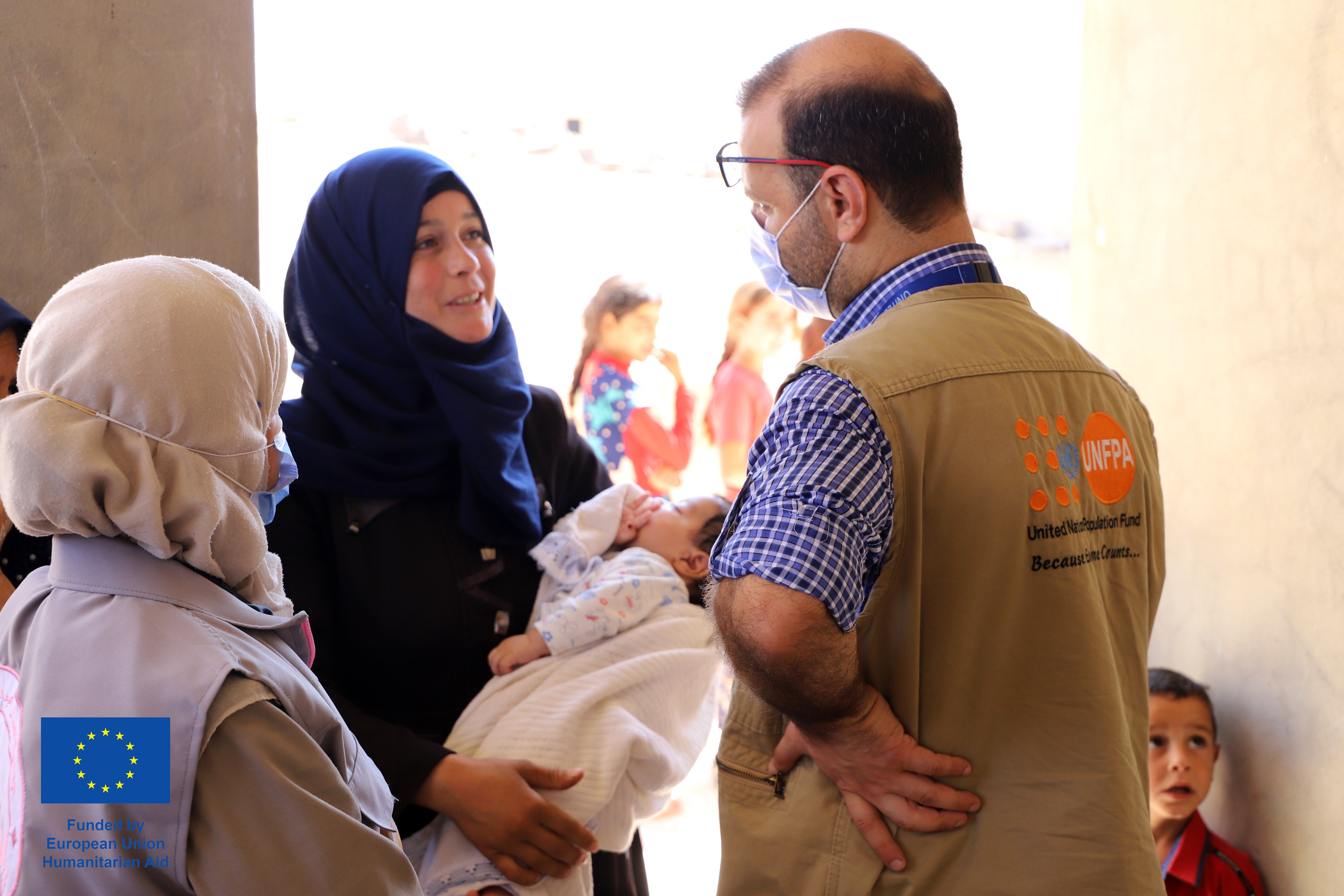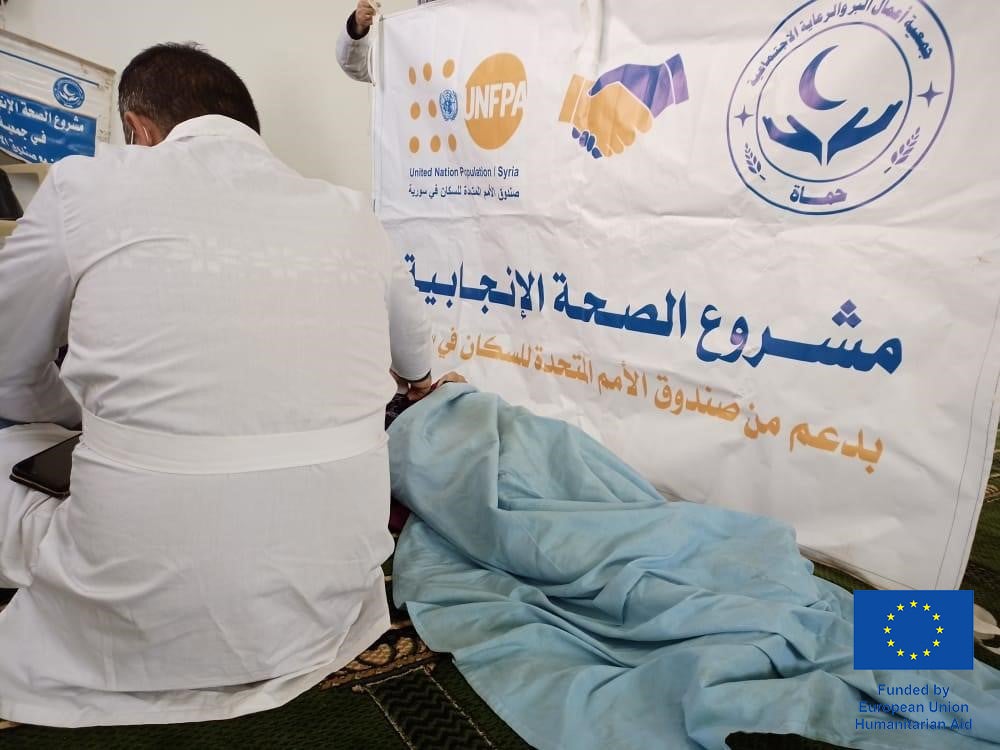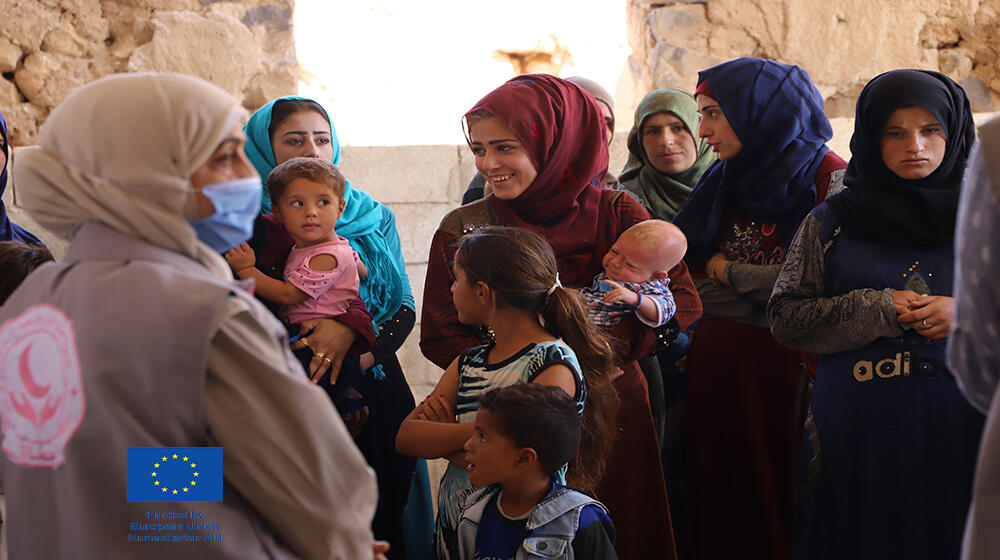"Without the mobile team’s support, I would be living with anxiety and fear and I would not be able to check on my health” Om Muhamad said.
Om Muhamad, 46 years old, lives in Kazo village located in western Hama countryside; where there are no available functioning health centers.
Om Muhamad and other numerous women wait for the weekly visits of the Al -Bir association medical team, which is supported by UNFPA & European Union, to check their health and their children’s health as well.
“Om Muhamad has suffered a lot from a persistent breast pain. In the beginning, she was hesitant and very scared to inform the medical team about her concerns, terrified of breast cancer because she cannot afford the treatment,” the doctor described Om Muhamed’s situation.

She had these doubts for the past three months, which caused her mental health to deteriorate. Eventually she took the decision to request an advice from the psycho-social support of the mobile team, and followed five “one to one” sessions with her, the psycho-social support specialist was able to convince her to check up with the doctor and share her concerns.
The doctor found a lump during the clinical examination, hence she has been referred to take a mammography test which revealed that she has cysts on the breast that correspond to Levi-Casey's disease.
After being diagnosed, the medical team provided the necessary treatment in addition to the support and guidance during her regular follow-ups and Om Muhamad became in a better physical and mental health.
“The Mental health is as important as the physical health. A big thanks to your services, you saved my life as I feel much better now”. She expressed her gratitude to the mobile team.
Women and girls in Syria continue to face enormous difficulties to access essential medical services such as basic sexual and reproductive health ones, in addition to facing the mounting threat of gender-based violence due to the country’s economic crisis.

Since the onset of COVID-19, these challenges have only worsened, requiring far-reaching responses to ensure that no one is left behind.
“UNFPA is grateful to the European Union (EU) for its continued support of our vital programmes throughout Syria, which continue to save lives and offer much-needed lifelines for communities and individuals impacted by this protracted crisis,” commented Dr. Iyad Nasr, UNFPA Syria Representative.
“The EU’s generous support enables UNFPA to continue providing Syria’s women and girls with essential sexual and reproductive health services and gender-based violence programming that promote healing, agency, and self-development.” Dr. Nasr added.
With the funding from the European Union (EU), the United Nations Population Fund (UNFPA) continues to deliver much-needed assistance programmes in Syria over the course of 2021, with a focus on safeguarding the lives and dignity of women and girls.


